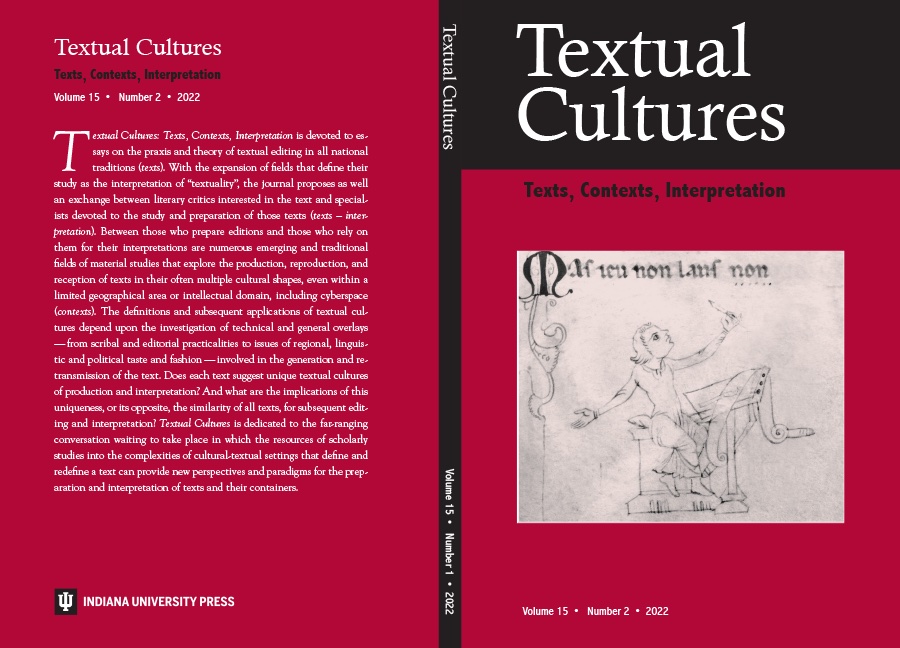Music and Grammar Models of Dantean Inquiry from the De Vulgari Eloquentia to Inf. 3
Main Article Content
Abstract
Dante’s original and insightful linguistics and poetics have prompted important conversations among scholars, in terms of their anthropological, theological, and philosophical implications. In this article, I reconsider Dante’s understanding of language and poetics from the perspective of grammar and music. I bring together the scholarship from these two disciplines to analyze Dante’s theoretical and poetical works, and I argue that grammar and music offered Dante two distinct ways to think about language. I trace the relationship between the two disciplines in the De Vulgari Eloquentia first, and in the first cantos of the Comedy (Inf. 1–3), in the second part of this article. Ultimately, I show that a deeper understanding of Dante’s grammatical and musical models of linguistic inquiry can shed new light on our comprehension not only of his poetics but also of his ethical and political project.
Downloads
Article Details
Authors who publish with this journal agree to the following terms:
- Authors retain copyright and grant the journal right of first publication with the work simultaneously licensed under a Creative Commons Attribution License (see:http://creativecommons.org/licenses/by/3.0/us/) that allows others to share the work with an acknowledgment of the work's authorship and initial publication in this journal.
- Authors warrant that their submission is their own original work, and that they have the right to grant the rights contained in this license. Authors also warrant that their submission does not, to the best of your knowledge, infringe upon anyone's copyright. If the submission contains material for which an author does not hold the copyright, authors warrant that they have obtained the unrestricted permission of the copyright owner to grant Indiana University the rights required by this license, and that such third-party owned material is clearly identified and acknowledged within the text or content of their submission.
- Authors are able to enter into separate, additional contractual arrangements for the non-exclusive distribution of the journal's published version of the work (e.g., post it to an institutional repository or publish it in a book), with an acknowledgment of its initial publication in this journal.
